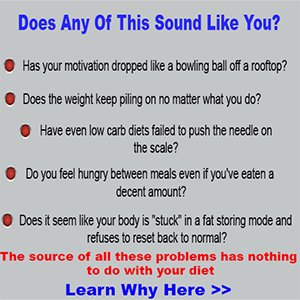Are You Starving Your Brain From This Vital Nutrient?
How This Nutrient Can Be A Key To Better Mental Health
The research is in: Omega-3 fatty acids are good for us. They help with reducing inflammation in the body, help prevent heart disease, and now, help to reduce the effects of strokes. Now new research in the realm of mental health could shed some light on a very dark subject.
Each year, the death rate from suicides is on the rise. Latest data accumulated in 2007, showed suicide was the seventh leading cause of death in the United States. In ages 15-24, suicide was the third leading cause of death. These numbers, unfortunately, are not going down.
The Military has been in the news recently regarding this very subject. In July, suicide rates were at an all-time high. They found that in the past year, death by suicide has risen dramatically and is close to matching civilian suicide rates.
New research coming from the US Military shows the benefits on Omega-3 fatty acids on mental health status and suicide rates. Let me explain why.
Your Brain On Omega-3s
Omega-3 fatty acids play a large role in brain development, chemical makeup, and fatty-acid content. Grey matter, a part of the brain and the central nervous system, acts like a supercomputer in the brain. Neurons and other cells in grey matter create information to be delivered to the body. Grey matter does not work without white matter, which are the cables connecting the computer to the cells of the body. Grey matter is full of Omega-3 fatty acids, specifically DHA.
Omega-3 fatty acids are not made by the body, so they need to be part of a healthy diet. Foods rich in Omega-3s, vegetables, free-range beef, and fatty fish, provide Omega-3s which helps to protect the heart, eyes, and possibly replenishing low levels in the blood and brain.
They also noted rations provided to the soldiers were lacking in Omega-3 fatty acids, which possibly led to the low levels found in the blood. Here are some other statistics from the study:
• Suicide risk was greatest in individuals lacking DHA in the blood
• Individuals lacking Omega-3 fatty acids had a 14% higher risk for committing suicide
• Men with as small a decrease of 1.75% in the blood, showed an increased risk of suicide
• A small percentage of the deaths reported were due to witnessing a fellow soldier wounded, critically wounded, or mortally wounded
This is not the only study on low Omega-3 fatty acids and suicide risk. A study from Huan et al. out of Japan, also confirmed similar findings back in 2004. They researched 200 people -100 who had attempted suicide and 100 healthy volunteers. They found in the 100 people who attempted suicide, that their concentration of Omega-3 fatty acids, specifically EPA, in the blood was significantly lower than the healthy volunteers. Their research concluded low Omega-3 fatty acids in the blood should be considered a risk factor when dealing with suicide risk.
This research is groundbreaking! Both studies concluded there is a need for more research in this area to determine the exact function Omega-3s play in the brain, and in connection with suicide and mental health.
This has not stopped the military though. They are taking this research extremely serious. They see many factors leading to suicide and depressed thinking. Multiple deployments and exposure to fellow wounded soldiers are some common threads they have found. However, they have also found the rations fed to soldiers is lacking in the right nutrients, specifically Omega-3s.
Rations are nutrient dense, full of complex carbs and protein to keep calories high so soldiers can perform at optimal levels. The same research by Hibbeln et al. determined rations to be lacking in Omega-3 fatty acids. The military is looking at new ways to include Omega-3 fatty acids in the rations to supply the soldiers with this vital nutrient.
Most diets are filled with the wrong ratios, similar to farm-raised beef and salmon, which can be filled with the wrong ratio due to the feed they are given. Having higher levels of Omega-6 fatty acids can possibly lead to more inflammation in the body. Having the right ratio of Omega-3/Omega-6, which is roughly 4:1, can help reduce inflammation and can increase DHA and EPA levels in the blood.
Maintaining appropriate levels of Omega-3s in our diet might increase levels in the blood, which might lead to increased levels in the brain. This might help reduce depression symptoms and suicide risk in individuals who are at higher risk, however, it is noted there is a need for more research in this area.
The military is doing a lot of research on the impact of Omega-3s, and providing soldiers with optimal nutrition for enhanced performance. Every day, individuals can benefit from increasing Omega-3s and DHA from essential fatty acids in the body which might help preserve our most vital organ, our brain.
NEXT: New Discovery Is 47 Times More Powerful Than Regular Fish Oil >>
References:
Hibbeln, JR. Suicide Death Of Active Duty US-Military and Omega 3 Fatty Acid Status: A Case Control Comparison. J. Clin. Psychiatry. August 2011.
Huan, M. Hamazaki, K. Sun, Y. Itomura, M. Liu, H. Kang, W. Watahabe, S. Terasawa, K. Hamazaki, T. Suicide Attempt and n-3 fatty acids levels in Red Blood Cells: A case controlled study in China. Biological Psychiatry. October 2004. Vol. 56(7);pp. 490-496.
About Jayson Hunter & Jaylab Pro

Jaylab Pro was founded by Registered Dietitian Jayson Hunter. Jayson has been recognized as one of America's foremost weight loss experts by America's Premier Experts™. He has also been featured in USA Today for this accomplishment. Jayson is also a best-selling author having co-authored multiple books in health & fitness and business growth. Jayson and the Jaylab Pro team are proud to create content that helps improve the lives of millions of people around the world. We hope you enjoy it just as much as others have.
 If you order a JayLabPro SmartShip product or any Combo Package, we will automatically ship you a new supply of the product or products you have ordered every month, starting 30 days after your initial order is shipped, and continuing until you cancel. The credit card you are using today will be billed the lowest available price for those product or products when your order is shipped, but shipping will be FREE. You may log into your customer account or call our customer service department toll-free at 1-888-9GETPRO (1-888-943-8776) between the hours of 8am – 9pm EST Mon-Fri to cancel future shipments, customize the timing of your shipments, or change the credit card used for billing.
If you order a JayLabPro SmartShip product or any Combo Package, we will automatically ship you a new supply of the product or products you have ordered every month, starting 30 days after your initial order is shipped, and continuing until you cancel. The credit card you are using today will be billed the lowest available price for those product or products when your order is shipped, but shipping will be FREE. You may log into your customer account or call our customer service department toll-free at 1-888-9GETPRO (1-888-943-8776) between the hours of 8am – 9pm EST Mon-Fri to cancel future shipments, customize the timing of your shipments, or change the credit card used for billing.









